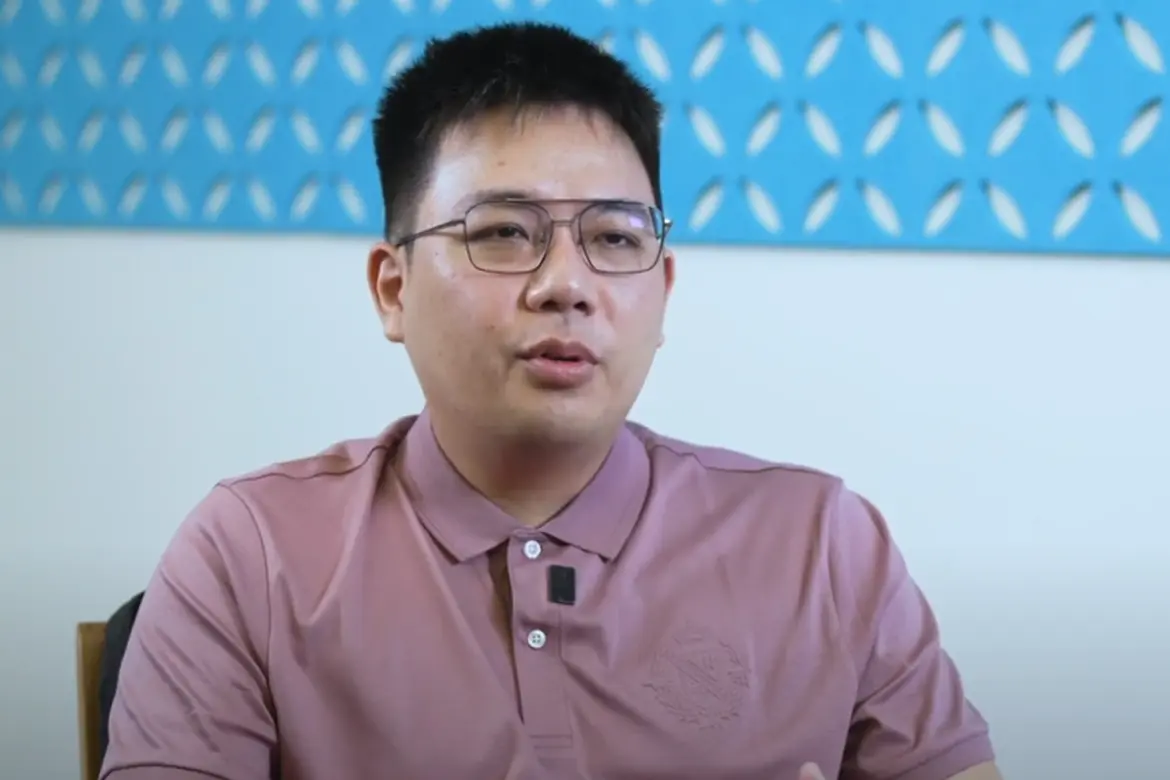

Kelvin’s Nose Cancer Journey: From Symptoms to Strength
Last updated: Tuesday, April 8, 2025 | 6 min reading time
For months, Kelvin thought it was just a stubborn flu—fatigue, congestion, mild fever. But deep down, he knew something wasn’t quite right.
Then one day, he woke up with a visibly swollen neck. And that was the wake-up call that would change his life.
Kelvin was diagnosed with nasopharyngeal cancer, a form of cancer that begins behind the nose and above the back of the throat. What followed was a journey filled with physical challenge, emotional resilience—and the quiet power of being prepared with the right medical support and health insurance coverage.
It didn’t look or feel like cancer
Many people associate cancer with dramatic weight loss or intense symptoms. In fact, that’s what we’re always told about cancer – look out for unintentional weight loss, lumps, and unusual pain. But for Kelvin, his early symptoms looked nothing like that. He was gaining weight, not losing it. He hadn’t experienced any significant pain, his energy was low, but not enough to stop him in his tracks or alarm him. And it took six months of seemingly minor symptoms before the swelling in his neck prompted him to see a doctor.
"I could turn off the car and just fall asleep—I was that exhausted. But I still didn’t think it was cancer," he recalled.
Kelvin’s experience with nasopharyngeal cancer is a stark reminder that not all illnesses come with flashing warning lights. Sometimes, it’s the quiet, persistent changes that go unnoticed that ultimately lead to life-changing diagnoses.
The moment everything changed
Kelvin’s turning point came after a specialist visit that was made possible by a combination of his wife’s Corporate Insurance, which also covered spouses, and his personal Integrated Shield Plan. His swollen neck prompted the ENT specialist to order additional tests which ultimately led to a consultation with an oncologist at Mount Elizabeth Novena Hospital.
“When she told me it was cancer, I went silent. I think part of me already knew, but hearing it confirmed still felt like a punch to the gut.”
The diagnosis: stage 3 nasopharyngeal cancer, a type of cancer located behind the nose and above the back of the throat.
What followed the diagnosis was a flood of questions, fears, and unknowns from Kelvin and his wife. But amid the uncertainty, one thing gave him clarity—his oncologist's calm confidence and clear plan of action.
“She explained everything: the type of cancer, the treatment timeline, what to expect. It wasn’t just clinical. She gave me hope. It’s one thing to be treated. It’s another to be seen, heard, and guided. That trust was everything.”
A gruelling, but hopeful treatment journey
Kelvin’s treatment spanned several months and consisted of:
- 3 to 4 initial cycles of chemotherapy to shrink the tumour
- A full month of daily radiotherapy
- 2 additional cycles of concurrent chemo and radiotherapy
Kelvin’s cancer didn’t require surgery—just determination, personalised care, and the quiet strength to push through. And while it was difficult, he was never alone. His medical team, supported by Mount Elizabeth Novena Hospital’s efficiency and expertise, was with him every step of the way.
The strong support of his wife and their future plans of having children carried him through this tough time. And with the safety net of his Integrated Shield Plan, he could focus fully on recovery rather than expenses. Reminding us that health insurance isn’t just about medical bills—it’s about peace of mind when everything else feels uncertain.
The mindset that saved him
For Kelvin, health insurance and access to quality care were vital. But he believes the most powerful part of his healing came from within.
“I’ve always believed that a person’s mindset is more important to recovery than anything. If you have a positive mindset, half the battle is won.”
Today, Kelvin is in remission and while he still goes for annual scans, he lives life with a little more gratitude—and a lot more perspective.
Lessons we can all learn from Kelvin
- Don’t ignore subtle symptoms. Fatigue, recurring flu, or swelling could be signs of something more serious. Trust your instincts and seek help early.
- Health insurance is not optional. It’s not just about protecting your savings—it’s about giving yourself access to the best care when you need it most.
- Your mindset matters too. Stay hopeful. Stay strong. Healing is as much mental as it is physical.
Moving forward with strength and clarity
Kelvin’s story is one of resilience, but also of readiness. It’s a reminder that while we can’t always predict illness, we can prepare for it—through the right support system, the right care, and the right health insurance.
If you or someone you love is navigating a difficult diagnosis, remember: you're not alone. Whether you're seeking a second opinion, looking into your health insurance options, or simply want to understand what lies ahead, we are here to guide you.
Understanding nasopharyngeal cancer
Nasopharyngeal cancer, more commonly known as nose cancer, is a type of head and neck cancer that begins in the nasopharynx — the upper part of the throat located behind the nose. This area contains cells that can become cancerous due to a variety of factors, including genetic predisposition, Epstein-Barr virus (EBV) infection , and certain dietary habits such as frequent consumption of salted fish and preserved foods.
NPC often grows silently in its early stages, making it difficult to detect. Symptoms like a persistent blocked nose, hearing loss, or blood in the saliva may only appear when the cancer has progressed. It is more common in Southeast Asia, including Singapore, and often affects men more than women.
Learn more about nasopharyngeal cancer and its risk factors.
Radiotherapy: The frontline treatment for nasopharyngeal cancer
Radiotherapy is the primary treatment for nasopharyngeal cancer, especially when diagnosed early. It uses high-energy rays to target and destroy cancer cells in the nasopharynx, while preserving nearby healthy tissue as much as possible. Due to the tumour's location, radiotherapy is often preferred over surgery.
For more advanced cases, chemoradiation — a combination of chemotherapy and radiotherapy — may be used to improve treatment outcomes. In certain situations, immunotherapy or targeted therapy may also be introduced to control the disease and prevent recurrence.
While treatment can be intensive, radiation techniques like (intensity-modulated radiation therapy) IMRT have significantly improved precision and reduced side effects.
Learn more about the treatment of nasopharyngeal cancer.
Mount Elizabeth Cancer Care: Possible Starts Today
At Mount Elizabeth, we offer expert care of nasopharyngeal cancer, supported by a dedicated team of oncologists and other specialists. If you or your loved one is experiencing nasopharyngeal cancer symptoms or other related health concerns, we’re here to help.
Find a specialist Brain & Spine Care
Brain & Spine Care








